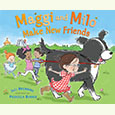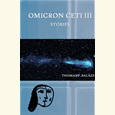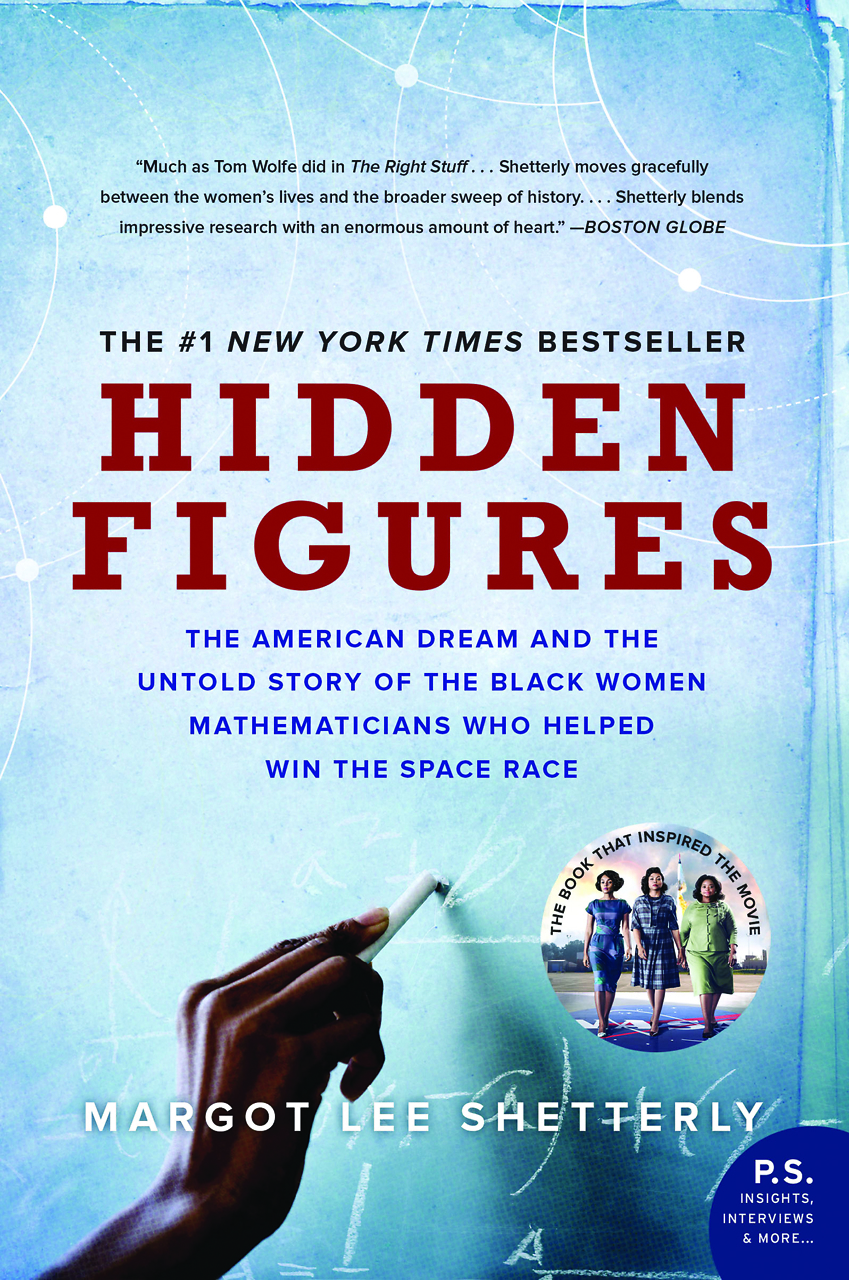Family Drama and Unfinished Romance
Kim Edwards, author of The Memory Keeper’s Daughter, talks with Chapter 16 about her new book, The Lake of Dreams
In 2005, when Kim Edwards’s debut novel, The Memory Keeper’s Daughter, was published, it garnered only minor attention. Sales were fine but not outstanding. It wasn’t until the following year, when the book came out in paperback, that word-of-mouth recommendations propelled it into the major leagues. The book eventually sold more than four million copies in the United States alone and spent 122 weeks on The New York Times bestseller list. This month marks the paperback publication of Edward’s second novel, The Lake of Dreams, another mind-bendingly good story about unraveling family secrets.
Set in a fictitious town in New York’s Finger Lakes region, The Lake of Dreams begins with the homecoming of Lucy Jarret after a decade in Japan. An earthquake brings back memories of her father’s mysterious death when she was seventeen, but it’s her mother’s injury in a car accident that brings Lucy home. There, she comes across old letters that unearth a mystery involving the suffragette movement. The narrative has two arcs: one is historical; the other unfolds in the present, rife with family drama and an unfinished romance.
In advance of her appearance in Memphis, Edwards answered questions from Chapter 16 via email:
Chapter 16: Is there any one moment from your childhood when you remember thinking, “I have to be a writer”?
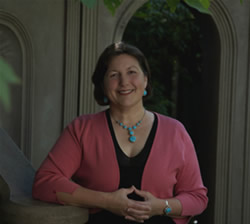 Edwards: I always knew I wanted to be a writer. I loved stories and books and language from the time I was very small, and used to wear my mother out reading to me until I learned to read myself. Learning how to become a writer was more challenging, because there isn’t a single path.
Edwards: I always knew I wanted to be a writer. I loved stories and books and language from the time I was very small, and used to wear my mother out reading to me until I learned to read myself. Learning how to become a writer was more challenging, because there isn’t a single path.
Chapter 16: Has the staggering success of The Memory Keeper’s Daughter changed your life in any important way? Does having such a large readership (and extensive touring schedule) make it any easier—or more difficult—to write?
Edwards: It’s wonderful to have readers around the world, and I like touring because I enjoy meeting readers and other writers and talking about books. On the other hand, I find I can’t write while I’m touring, so I’m always glad when things quiet down again and I’m able to get back to my contemplative writing life. The success of The Memory Keeper’s Daughter has opened many possibilities, including chances to do more charitable work and to write full-time, but in the essential day-to-day ways my life is much the same as it was before.
Chapter 16: You make publishing look easy. Was it, for you?
Edwards: Not at all, in the beginning. I started writing stories, and like most writers, I have a good-sized collection of rejection letters, first for the individual stories themselves, and then for my first book, which was a collection of stories. The years of apprenticeship for writing are long, and the path is uncertain. That’s why I tell aspiring writers that writing really has to be a labor of love. If the reward is in the writing itself, and in feeling yourself grow as a writer, then it’s easier to keep publishing, or not publishing, in perspective.
Chapter 16: Can you say a little about how you begin a story—with a character, location, an image, an idea, a sentence? With something else altogether?
Edwards: This varies from story to story and book to book. Sometimes it’s an image, or an overheard bit of conversation, or a newspaper article that inspires a story. I write to discover what these seeds contain.
Chapter 16: You’ve said you wrote a 400-page book that was a sort of precursor to The Lake of Dreams. How did you decide to let that go? What happens to the stories and novels you set aside? Do you ever go back to them?
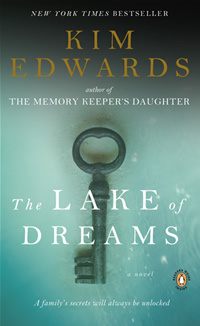 Edwards: Yes, that was long ago, when I was a very young writer, trying to move from short stories to novels. That early book really had nothing to do with The Lake of Dreams, but some elements, like Halley’s comet and the importance of the land, were in that early book and stayed with me. Looking back, I realize that as a young writer I was nervous about the demands of the longer form of the novel, and so I tried to plot everything out in advance. That is not how I normally write; I’m much more of an intuitive writer, especially in the early stages of a story, letting the characters take on their own lives before I get into revisions and the intellectual shaping. By abandoning what worked for me and trying to plot that early book in advance, I organized every scrap of life right out of it!
Edwards: Yes, that was long ago, when I was a very young writer, trying to move from short stories to novels. That early book really had nothing to do with The Lake of Dreams, but some elements, like Halley’s comet and the importance of the land, were in that early book and stayed with me. Looking back, I realize that as a young writer I was nervous about the demands of the longer form of the novel, and so I tried to plot everything out in advance. That is not how I normally write; I’m much more of an intuitive writer, especially in the early stages of a story, letting the characters take on their own lives before I get into revisions and the intellectual shaping. By abandoning what worked for me and trying to plot that early book in advance, I organized every scrap of life right out of it!
Chapter 16: For years you taught writing at the University of Kentucky. How does teaching complement writing?
Edwards: I do love teaching; with undergraduates, I enjoy their un-jaded thrill of learning, and with the graduate students I like the excitement of seeing them gain mastery over various aspects of craft. However, I’ve recently left teaching full-time, with regret, so I can concentrate on writing amid all the traveling I do for book tours, here and abroad.
Chapter 16: The Memory Keeper’s Daughter is set in Lexington, where you’ve lived for the last sixteen years, and The Lake of Dreams takes place in New York’s Finger Lakes region, where you grew up. Did you feel a responsibility to represent those places accurately? How does writing about a familiar location change your relationship to it?
Edwards: I like writing about places I know well because it frees my imagination to focus on the characters. Writing The Lake of Dreams, my understanding of the Finger Lakes region really grew and changed. It’s a beautiful area, and I knew most of its history in a glancing way just from growing up there. As I started doing research, however, my knowledge grew and deepened in many areas, especially in regard to the history of stained glass and the struggle for women’s suffrage. Walking those familiar streets as an adult, time dissolved. I could really imagine Elizabeth Cady Stanton pausing on the corner with Amelia Bloomer and Susan B. Anthony, for instance—three young women, passionate in their desire for equality, with no idea that they were about to change the world.
Kim Edwards will appear at “Literacy is Key: A Book & Author Affair” on January 26 at 10 a.m. at the University of Memphis. The program will also feature remarks by Lisa Patton, author of Yankee Doodle Dixie, and Ace Atkins, author of The Ranger, and proceeds will support both Literacy Mid-South and Reading is Fundamental. For information and tickets, please click here.

